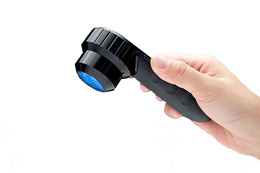Doctor Examination
When you arrive at the Skin Cancer Centre you will be asked by our reception staff to complete a patient questionnaire. Please bring a list of your current medications as well as your local GP details to help complete your details. If you wish you can download and print a registration form to complete prior to your appointment.
During your consultation the skin cancer doctor will assess your medical and family history, particularly in relation to previous skin cancers and sunburns, medications, previous operations, occupation and recreational activities and whether you are allergic to medications. Your doctor will also want to know whether you take medications that thin the blood (eg Asprin, Warfarin, Iscover, Plavix) or whether you have a pacemaker. Please mention any particular spots that you are concerned about to your doctor.
Generally patients are asked to remove their clothing down to their underwear so that the entire skin may be easily examined. There is usually no need for your doctor to routinely inspect the genital areas, or breasts in women, however, if you have a spot in these areas that you are concerned about then you should mention that to your doctor so that the spot can be checked. The reason that you should have the entire skin checked is because melanoma skin cancers can potentially arise in areas that have not necessarily had much sun exposure.
Makeup, including lipstick and foundation should be removed prior to your consultation
 The doctor will examine your skin from top to toe, using good lighting and a magnification device. Particular skin spots will be examined by a high magnification device called a dermatoscope ( or dermoscope) - this will assist your doctor in making a diagnosis.
The doctor will examine your skin from top to toe, using good lighting and a magnification device. Particular skin spots will be examined by a high magnification device called a dermatoscope ( or dermoscope) - this will assist your doctor in making a diagnosis.
Occasionally a biopsy of a suspicious lesion will be required. In addition, digital photographic monitoring is sometimes required for moles. These can be performed at the centre.
If you are diagnosed with a skin cancer, your doctor will be able to work out a treatment plan that is best for you. Often the skin cancer can be treated in the purpose built rooms at the centre, either with surgery or occasionally a non-surgical treatment. At other times, especially with large skin cancers, it may be necessary to refer you to a specialist plastic surgeon for treatment. We have close links with local plastic surgeons and can arrange appointments within a few days when required.
What is Your Skin Cancer Risk?
Calculate your level of risk of developing a skin cancer from exposure to the sun.

